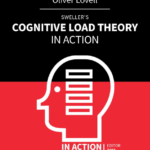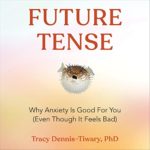Most research focuses narrowly on just a few questions. For instance:
“Does mindful meditation help 5th grade students reduce anxiety?”
“How many instructions overwhelm college students’ working memory?”
“Do quizzes improve attention when students learn from online videos?”
Very occasionally, however, just one study results in LOTS of teaching advice. For instance, this recent research looks at data from ELEVEN YEARS of classroom teaching.
Professor Arnold Glass (writing with Mengxue Kang) has been looking at the benefits of various teaching strategies since 2008.
For that reason, he can draw conclusions about those strategies. AND, he can draw conclusions about changes over time.
The result: LOTS of useful guidance.
Here’s the story…
The Research
Glass has been teaching college courses in Memory and Cognition for over a decade. Of course, he wants to practice what he preaches. For instance:
First, when Glass’s students learn about concepts, he begins by asking them to make plausible predictions about the topics they’re going to study.
Of course, his students haven’t studied the topic yet, so they’re unlikely to get the answers right. But simply thinking about these questions helps them remember the correct answers that they do learn.
In research world, we often call this strategy “pretesting” or “prequestions.”
Second, after students learn the topics, he asks them to answer questions about them from memory.
That is: he doesn’t want them to look up the correct answers, but to try and remember the correct answers.
In research world, we call this technique “retrieval practice” or “the testing effect.”
Third, Glass spreads these questions out over time. His students don’t answer retrieval practice questions once; they do so several times.
In research world, we call this technique “spacing.”
Because Glass connects all those pretesting and retrieval practice questions to exam questions, he can see which strategies benefit.
And, because he’s been tracking data for years, he can see how those benefits change over time.
The Results: Good & Bad
Obviously, Glass’s approach generates LOTS of results. So, let’s keep things simple.
First Headline: these strategies work.
Pretesting and retrieval practice and spacing all help students learn.
These results don’t surprise us, but we’re happy to have confirmation.
Second Headline: but sometimes these strategies don’t work.
In other words: most of the time, students get questions right on the final exam more often than they did for the pretesting and the retrieval practice.
But, occasionally, students do better on the pretest question (or the retrieval practice question) than on the final exam.
Technically speaking, that result is BIZARRE.
How can Glass explain this finding?
Tentative Explanations, Alarming Trends
Glass and Kang have a hypothesis to explain this “bizarre” finding. In fact, this study explores their hypothesis.
Glass’s students answer the “pretesting” questions for homework. What if, instead of speculating to answer those pretesting questions, the students look the answer up on the interwebs?
What if, instead of answering “retrieval practice” questions by trying to remember, the students look up the answers?
In these cases, the students would almost certainly get the answers right — so they would have high scores on these practice exercises.
But they wouldn’t learn the information well, so they would have low scores on the final exam.
So, pretesting and retrieval practice work if students actually do it.
But if the students look up answer instead of predicting, they don’t get the benefits of prequestions.
If they look up the answer instead of trying to remember, they don’t get the benefit of retrieval practice.
And, here’s the “alarming trend”: the percentage of students who look up the answers has been rising dramatically.
How dramatically? In 2008, it was about 15%. In 2018, it was about 50%.
Promises Fulfilled
The title of the blog post promises to make homework helpful (and to point out when retrieval practice fails).
So, here goes.
Retrieval practice fails when students don’t try to retrieve.
Homework that includes retrieval practice won’t help if students look up the answers.
So, to make homework help (and to get the benefits of retrieval practice), we should do everything we reasonably can to prevent this shortcut.
Three strategies come quickly to mind.
First: don’t just use prequestions and retrieval practice. Instead, explain the logic and the research behind them. Students should know: they won’t get the benefits if they don’t do the thinking.
Second: as must as is reasonably possible, make homework low-stakes or no-stakes. Students have less incentive to cheat if doing so doesn’t get them any points. (And, they know that it harms their learning.)
Third: use class time for both strategies.
In other words: we teachers ultimately can’t force students to “make educated predictions” or “try to remember” when they’re at home. But we can monitor them in class to ensure they’re doing so.
These strategies, to be blunt, might not work well as homework — especially not at the beginning of the year. We should plan accordingly.
TL;DR
Prequestions and retrieval practice do help students learn, but only if students actually do the thinking these strategies require.
We teachers should be realistic about our students’ homework habits and incentives, and design assignments that nudge them in the right directions.
Glass, A. L., & Kang, M. (2022). Fewer students are benefiting from doing their homework: an eleven-year study. Educational Psychology, 42(2), 185-199.




